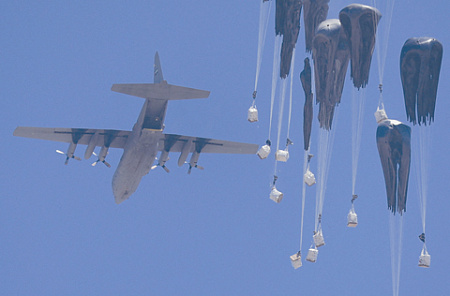
The Trump administration is reportedly re-evaluating its strategy for the war in Gaza as patience wears thin over stalled ceasefire negotiations between Israel and Hamas. President Donald Trump has signaled a potential policy shift, suggesting that Israel may have to “finish the job” as diplomatic efforts falter, raising concerns of a potential escalation in the conflict.
According to a report by Axios, the impetus for this strategic reassessment is the latest breakdown in the negotiation process. Hamas has reportedly rejected the most recent ceasefire proposal, insisting on a guaranteed permanent end to hostilities—a condition Israel is unwilling to accept. In response to the impasse, Israel has withdrawn its negotiating team from the indirect talks that were being held in Qatar.
Citing sources familiar with the matter, Axios reported that senior U.S. officials are urging a strategic “rethink” and the development of “new options” for the president. While President Trump is said to be genuinely concerned about the ongoing conflict and desires a durable end to the war, he has reportedly placed little direct pressure on Israeli Prime Minister Benjamin Netanyahu. Instead, sources claim Trump has often encouraged Netanyahu to “do what you have to do in Gaza,” and in some cases, even urged a tougher stance against Hamas.
This hardening position was echoed in recent public statements from President Trump, who expressed deep frustration with the militant group. “I think they want to die, and that’s a very, very bad thing. The moment has to come when you have to finish it,” Trump stated, adding his belief that Hamas was not genuinely interested in a deal. He suggested Hamas was reluctant to release the final group of hostages, knowing the leverage it would lose once they were freed.
Amid the escalating rhetoric, the Israel Defense Forces (IDF) announced on July 27 the implementation of a daily tactical pause in military activities in specific areas of the Gaza Strip to facilitate humanitarian aid. The IDF stated that this pause would occur from 10:00 AM to 8:00 PM daily in designated areas, including Al-Mawasi and Deir al-Balah, to allow for the safe passage and distribution of food and medical supplies by the UN and other aid organizations.
It remains unclear whether Washington’s tougher tone represents a definitive policy change or a tactical maneuver designed to pressure Hamas back to the negotiating table. The move comes as Israel faces growing international criticism over the humanitarian crisis in Gaza. Despite the current deadlock, the Saudi newspaper Asharq Al-Awsat has reported that indirect talks between Hamas and Israel are likely to resume in the coming week, suggesting a diplomatic path has not been entirely abandoned.
